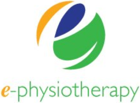Chronic Pain
Chronic pain can be from a number of issues and is often associated with unresolved non-specific low back pain or arthritis, such as osteoarthritis. It can also be from neuropathic pain, where the nerve itself becomes dysfunctional and sends out nociceptive (pain) signals. Unfortunately, you are not usually given a specific diagnosis and have to [...]

